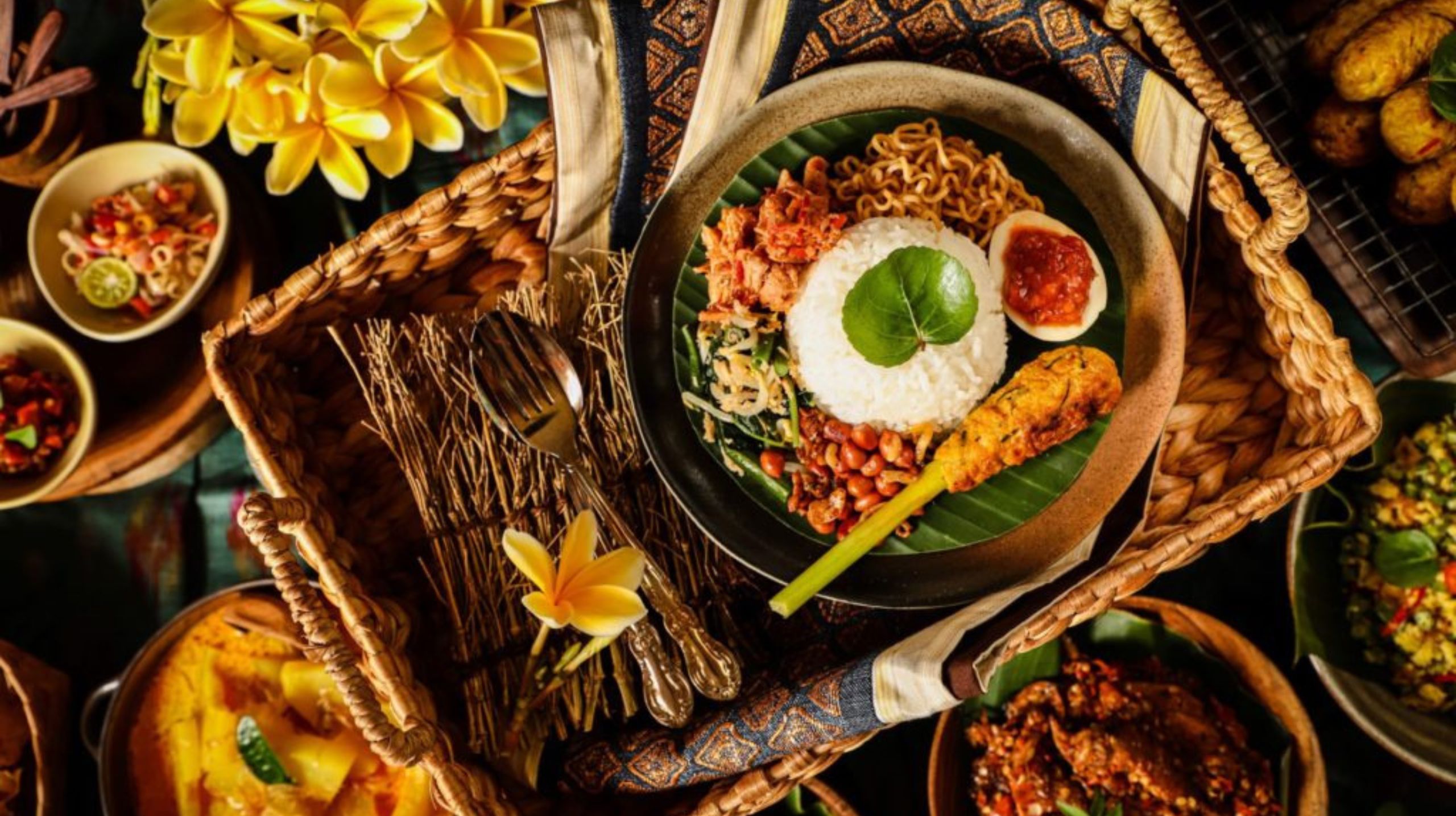World-Class Ubud Cuisine – Ubud, Bali, has long held its place as a leading cultural and natural tourism destination. Now, Tourism and Creative Economy Minister Sandiaga Uno has designated Ubud as a prototype for world gastronomy tourism. Supported by the World Tourism Organization (UNWTO), this ambitious project aims to make Ubud a global model in gastronomy tourism.

1. Definition of Gastronomy Tourism
Gastronomy tourism (Source Pict: Mytourism) focuses on exploring a region’s culinary landscape. It allows visitors to enjoy local dishes, learn about food preparation, and engage with local producers. Travelers can also participate in culinary events like festivals and cooking demonstrations, offering a deep dive into local food culture.
The Ministry of Tourism and Creative Economy highlights that gastronomy tourism provides a rich experience centered on local food traditions, unique ingredients, and cooking methods. This type of tourism enables travelers to forge a deeper connection with the destination and supports local economies by promoting small-scale producers and culinary artisans.
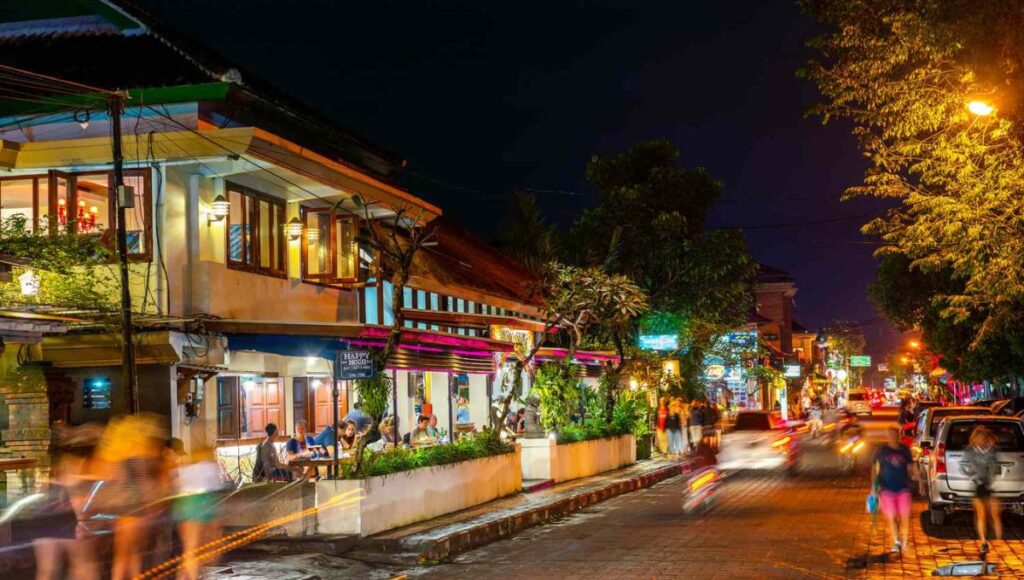
2. Ubud: A New Global Tourism Standard
The selection of Ubud (Source Pict: Tripsavvy) as the world’s pilot project for gastronomy tourism did not happen by chance. Indeed, Menparekraf Sandiaga Uno highlighted that the readiness and collaboration of creative economy players and stakeholders were crucial for this selection. Consequently, Ubud has demonstrated its potential to welcome travelers seeking authentic culinary experiences.
Secretary of the Tourism Office of Gianyar Regency, Pande Putu Ayu Sri Ratnawati, noted that Ubud’s diverse local culinary offerings are set to enhance its recognition for beauty. The gastronomy working team has formed to ensure that all food, from breakfast to dinner, meets international standards and is packaged healthily.

3. UNWTO Gastronomy Network
The UNWTO (Source Pict: Dpogroup) will make an official visit to Ubud and report the results in the UNWTO Gastronomy Tourism Development taking place in Bali on December 14, 2023. One of the main agenda items is the establishment of the Gastronomy Tourism Club, which aims to strengthen networking and collaboration between gastronomy tourism destinations around the world.
With UNWTO’s support, Ubud aims to develop a gastronomy tourism model applicable to other destinations. The Gastronomy Tourism Club will also provide opportunities for Ubud’s culinary industry to learn from best practices elsewhere and enhance their services and products.
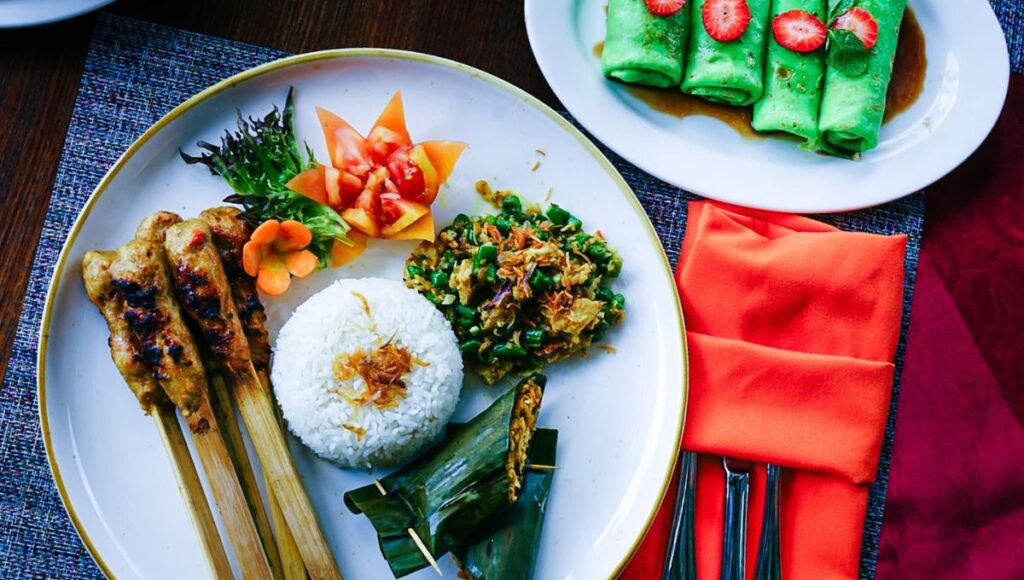
4. World Gastronomy Destination Criteria
In 2019, Ubud has been designated as one of the world’s gastronomy tourism destinations (Source Pict: Museumofwander) According to Vita Datau from the Indonesia Gastronomy Network, Ubud has met the five main criteria set by UNWTO to become a world gastronomy destination. First, food is an integral part of the lifestyle for both the community and visitors in Ubud. Second, Ubud’s cuisine primarily uses local products, supporting local agriculture and industry.
Third, Ubud’s rich culture and history are reflected in its culinary traditions. Fourth, every dish in Ubud tells a story that connects the food with local history and culture. Fifth, the food served in Ubud pays attention to nutritional balance for consumers.
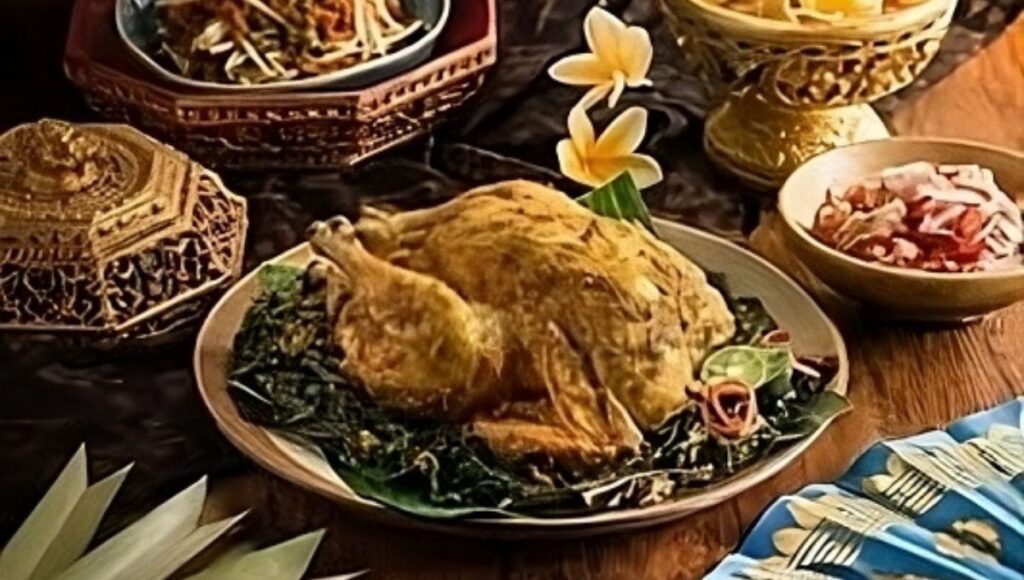
5. Ubud Culinary: More than Just Taste
A key feature of Ubud’s gastronomic tourism (Source Pict: Indonesiakaya) The use of genep seasoning in traditional dishes like Bebek Bengil, Ayam Betutu, and Satay Lilit imparts a unique and deep flavor while reflecting Bali’s rich cultural philosophy. Consequently, genep enhances the culinary experience and preserves traditional cooking techniques, offering visitors an authentic taste of Balinese heritage and artistry.
Bebek Bengil, a crispy fried duck, comes with spicy sambal matah. Meanwhile, Ayam Betutu, slow-cooked chicken with genep seasoning, delivers a complex flavor profile. Additionally, Satay Lilit, made from minced meat wrapped around lemongrass and seasoned with genep, produces an inviting aroma. Together, these dishes highlight the rich and diverse flavors of Balinese cuisine.
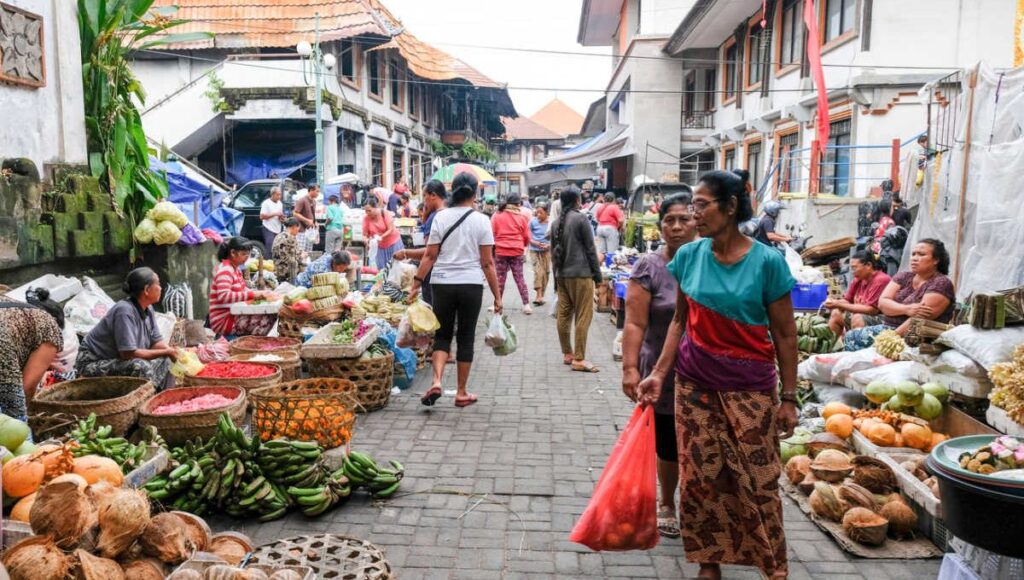
6. Local Economic Boost Opportunities
As Ubud becomes increasingly recognized as a gastronomic tourism destination, local farmers (Source Pict: Balisun), fishermen and producers will experience increased demand for their products, which will not only boost demand but also motivate them to enhance the quality of their crops and catch. Additionally, training and mentoring will help them adopt more sustainable practices, improving their economic well-being.
Increased tourist visits seeking authentic experiences will benefit restaurants and culinary services in Ubud, creating opportunities for cooking classes, culinary tours, and local food markets. Moreover, this rise in tourism will boost demand for local handicrafts and art, enhancing the creative economy and increasing local community income.
Conclusion: World-Class Ubud Cuisine
With UNWTO supporting Ubud as a prototype for world gastronomy tourism, it aims to develop an international culinary tourism model. By creating a Gastronomy Tourism Club and leveraging local products and traditions, Ubud seeks to attract more tourists, enhance service quality, and foster collaboration with other destinations. Consequently, this initiative will boost the local economy, promote sustainability, and preserve culture, positioning Ubud as a leading center of innovation and learning in gastronomy.
To fully immerse yourself in the beauty and traditions of Bali, consider staying at The Abasan Penida, Uma Dawa Resort and Spa Ubud, Anda Amed, or Alu Lofts Umalas. Each of these accommodations offers a unique and comfortable base from which to explore the rich cultural heritage of Bali.
Read more article about Nusa Penida Bali Indonesia:

